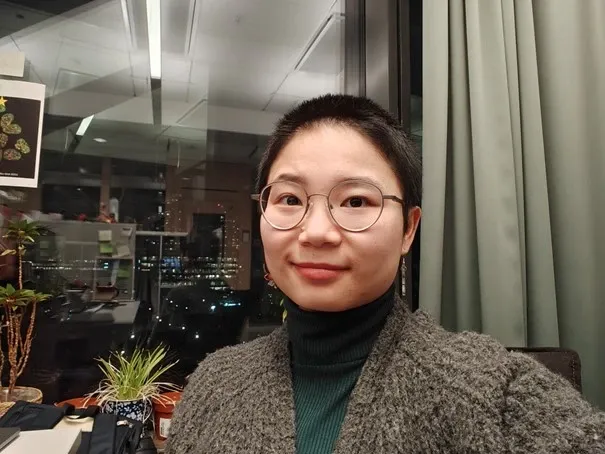Toxicology alumna Qianyu's PhD studies aim to increase the understanding of cancer biology
Name: Qianyu Zhou
Based: Stockholm, Sweden
Year of graduation: 2022
Current role: PhD student at Karolinska Institutet

What did you study as an undergraduate (bachelor)?
I pursued a Bachelor of Pharmaceutical Science at Shenyang Pharmaceutical University in China. My passion for chemistry during high school sparked a deep curiosity about drug discovery and design. This interest motivated me to explore how new medications are developed to combat various diseases, leading me to choose pharmaceutical science as my major.
Why did you choose the Master programme in Toxicology?
During my bachelor's studies, I became fascinated by how the human body responds to different chemicals. I particularly enjoyed exploring the molecular mechanisms behind these interactions and understanding how chemicals exert both therapeutic effects and toxicity. Among these aspects, I found it especially important to study the potential toxicity of chemicals in our environment, as a better understanding of this can help prevent diseases and protect public health. This passion led me to pursue toxicology, where I hope to contribute to advancing knowledge and promoting safer interactions with chemicals in our daily lives.
Where did you conduct your MSc thesis and what was it about?
I conducted my MSc thesis at the Institute of Environmental Medicine (IMM) under the supervision of Kristian Dreij, Felipe de Oliveira Galvão, and Caroline Scaramboni. My project focused on using in-cell western to investigate the DNA damage response induced by PAHs and PAH mixtures. One of our objectives was to evaluate whether in-cell western could serve as a high-throughput method for detecting PAH-induced DNA damage responses. Additionally, we aimed to characterize the kinetics and dynamics of genotoxicity from PAH mixtures, which is essential for improving cancer risk assessment.
Looking back on your time at KI and the Master programme in Toxicology, what is the most valuable thing that you learned?
Looking back on my time at KI and the MSc in Toxicology, the most valuable lessons I learned were critical thinking and the ability to think beyond conventional approaches. The program not only deepened my understanding of toxicology but also trained me to critically evaluate data, challenge assumptions, and explore innovative solutions to complex scientific questions. These skills have been essential in my PhD research, where problem-solving and analytical thinking play a crucial role in advancing scientific knowledge.
Where are you and what are you doing now?
I am currently conducting my PhD study in KI at the Department of Oncology-Pathology. Tumor growth depends on an enhanced ability to adapt to cellular stress. My project aims to investigate the role of mRNA pseudouridylation in regulating stress granules, which could potentially provide valuable insights into both normal development and disease, with significant implications for understanding cancer biology.
What made you decide on this career?
During my master’s thesis, I had the opportunity to explore how different polycyclic aromatic hydrocarbons (PAHs) affected cells by varying treatment types and concentrations while measuring different protein levels as readouts. This process felt almost like a scientific puzzle—each experiment was a way to test different possibilities, revealing how proteins responded in similar or distinct ways. It was both exploratory and systematic, like uncovering different pieces of a larger story. The dynamic and hands-on nature of this work made research feel engaging and exciting, ultimately inspiring me to pursue a PhD.
